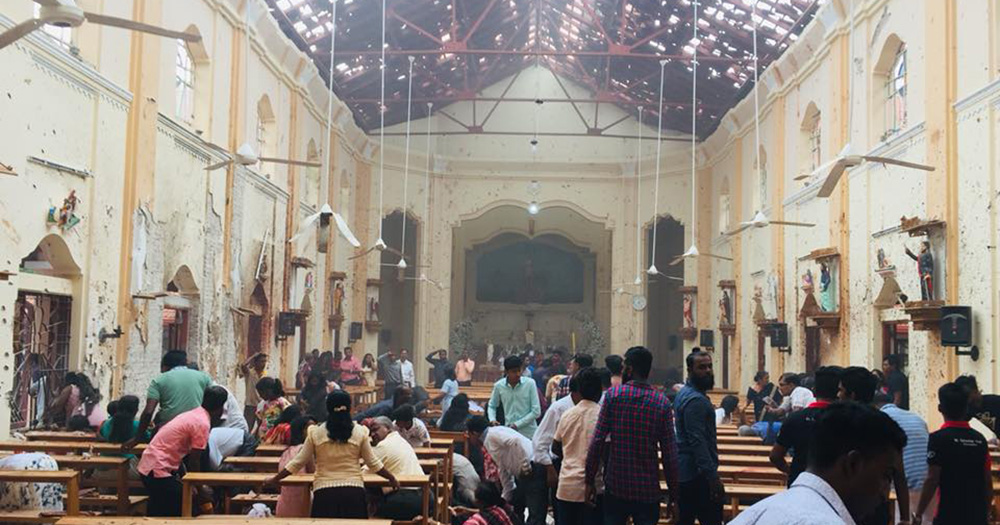The Sri Lankan government has blocked access to social media.
style="display:block; text-align:center;" data-ad-layout="in-article" data-ad-format="fluid" data-ad-client="ca-pub-8151337340296717" data-ad-slot="5584281553">
This is in response to a string of bombings that hit the country on Easter Sunday, April 21, which killed at least 290 people in churches and hotels.
So far, platforms that have been blocked include Facebook, WhatsApp and Instagram, as part of a bid by the Sri Lankan government to stem the spread of misinformation about the bombings, The Guardian reported.
Other platforms that have also been reported to be blocked are YouTube, Snapchat and Viber, The New York Times reported.
However, Twitter is still reportedly accessible.
Ban will only be lifted once investigations concluded
In a statement put up on its official news agency, the Sri Lankan government said that the move was taken due to the alleged spread of false news reports.
Additionally, the move would be effective until the investigations by security forces had concluded.
Here is the statement in full:
"The government has decided to temporarily block social media sites including Facebook and Instagram. Presidential Secretariat said in a statement that the decision to block social media was taken as false news reports were spreading through social media.
The statement added that security forces were conducting comprehensive investigations into the incidents of explosions and that the blockage would be effective until investigations were concluded."
In response, Facebook has stated it is aware of the Sri Lankan government's blocking of media platforms and that it is working to support Sri Lankan authorities, The Guardian further reported.
Sri Lanka Red Cross clarified it was not bombed
According to CNN, one of the more prominent pieces of misinformation that had spread in the wake of the bombings was the news that the Sri Lanka Red Cross had also been bombed.
This resulted in the organisation putting out the following tweet to clarify that no such thing had happened.
Rumours circulating on social media that the Red Cross building was attacked is false and wrong information. Please refrain from spreading unauthentic and false information on Social Media.
— Sri Lanka Red Cross (@SLRedCross) April 21, 2019
Spread of false news triggers fear of inter-religious violence
Of greater importance, however, is the fear that the spread of misinformation will trigger inter-religious violence.
The last time social media was blocked in Sri Lanka was in 2018, when reports of a Buddhist temple being attacked led to deadly anti-Muslim riots, The Guardian highlighted.
Crowds of Sri Lankans who were part of the Buddhist Sinhala majority attacked a mosque, Muslim-owned shops, and homes, forcing the Sri Lankan government to declare a national state of emergency at that time, BBC reported.
Some citizens of Colombo, the capital of Sri Lanka, have since voiced their support for the current ban, noting that they had already been receiving information over WhatsApp that named the bombers as Muslim men, according to The Guardian.
One resident was reported as stating that had social media not been shut down, there would be the potential for organised attacks on Sri Lanka's Muslim community.
13 suspects arrested so far but no group has claimed responsibility
The Guardian reported that the Sri Lankan authorities have arrested 13 suspects thus far, and that they were all from the same radical group.
But no group has claimed direct responsibility for the attacks so far.
Related stories:
Top photo from Sebastianchurch150's Facebook page.
If you like what you read, follow us on Facebook, Instagram, Twitter and Telegram to get the latest updates.
